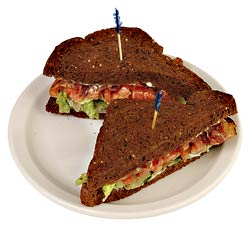In the aftermath of a disaster-ridden year, you might be considering gifts that address concerns larger than your loved ones’ wish lists. We’ve compiled this group of local, national, and international opportunities for helping those who face real need. Locally, charities are in high fund-raising gear this holiday season to help the 12.2 percent of Seattle families who 2004 census data report are living below the poverty line and the 8,000 people estimated to be homeless in 2005, according to King County’s Ten-Year Plan to End Homelessness.
Donate pots, pans, and kitchen items to the Sharehouse (www.thesharehouse.org). These items will help homeless families get set up in a place of their own. Northwest Harvest (www.northwestharvest.org) is the only statewide hunger relief organization in Washington; they take monetary donations as well as food items (see www.northwestharvest.org/dropoff.htm for drop-off sites). Select grocery store gift certificates and holiday presents for each member of your YWCA Adopt-a-Family (425-226-1266, ext. 1024, or e-mail rtimothy@ywcaworks.org). Find other holiday charity opportunities on the Crisis Clinic‘s Community Resources Online search engine (www2.ci.seattle.wa.us/CrisisClinic).
Nationally, folks in the South will need the continued support of the entire country after being ravaged by Katrina, Rita, Wilma, and other hurricanes. Fund-raising efforts are still roughly $500 million short of the Red Cross goal of over $2 billion to aid more than 1 million people displaced by Katrina and Rita alone (www.redcross.org, 1-800-HELP-NOW). A Red Cross fund for Hurricane Wilma relief is also in need of support. The Pacific Northwest’s own Mercy Corps (www.mercycorps.org) raised $8 million for hurricane survivors through donations and relief events, including a partnership with the Chow Foods restaurants for a one-night benefit. Donations are still needed.
Internationally, natural disaster was similarly menacing this year. As the freezing Himalayan winter approaches, there is a dire need for relief across the Pakistan-India border. The UN Chronicle estimates that over 3 million people in the region are homeless due to the October earthquake that killed over 80,000 people. Mercy Corps’ cash-for-work program supports using debris for construction of shelter for survivors. The International Federation of Red Cross and Red Crescent Societies (www.ifrc.org) and the Pakistan Red Cross reached 120,000 affected people with relief supplies and provided 36,000 people with health care by mid-November. You might also chose to support UNICEF‘s tent schools, psychological programs, and a rapid vaccination campaign against measles (www.supportunicef.org).
Africa is currently experiencing a drought-induced hunger crisis. The U.N. World Food Programme estimates that 43 million people from Niger to Malawi are affected. The Federation of Red Cross and Red Crescent has mobilized its Disaster Emergency Relief Fund to set up food-for-work projects, restore self-reliance in agriculture, and train staff in livelihood and food security in seven countries. Save the Children (www.savethechildren.org) tailors its relief to specific problems in six African countries. Projects range from nutrition awareness programs to food distribution.
Hurricane Stan brought flooding and landslides to Central America in October, particularly harming Guatemala and El Salvador. On Saturday, Dec. 17, the locally based El Centro de la Raza (2524 16th Ave. S., www.elcentrodelaraza.com) will host a traditional Guatemalan holiday dinner to benefit victims of that hurricane. A $12 donation is your ticket through the door. Project HOPE (www.projecthope.org) is responding with donations of food, water, clothing, and basic medical supplies. Donations to Guatemala-based Rights Action’s Central America Hurricane Relief Fund (www.rightsaction.org) will aid grassroots relief organizations in El Salvador, Guatemala, Honduras, and Chiapas (Mexico).







